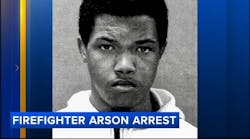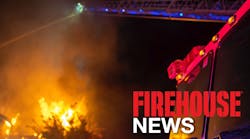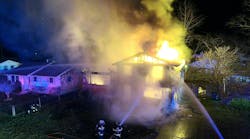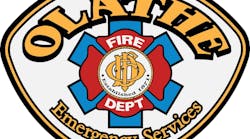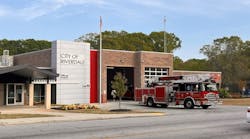When I was a firefighter working on the rig, we always talked about getting “the big one”—that really large incident. When the big one occurs, the fire public information officer (PIO) will be highly involved and therefore needs to be ready to handle this non-routine event.
Managing the incident
During my 30 years as a fire PIO, I have been involved with many large events, including very large fires, mass casualties, multiple fire deaths and large-scale natural disasters, to name a few. Two other notable incidents were the Olympic Park bombing during the 1996 Olympics in Atlanta and the Route 91 Festival mass shooting incident on the Las Vegas Strip in October 2017. Although I was not the primary PIO for either of those two events, I was indirectly involved and learned much from both of those incidents. Following are some points that can be helpful for the PIO.
Large events, like most other incidents, occur suddenly and without warning. What makes them different is they are usually large-scale and last for an extended period. They usually attract an overwhelming response by the media, sometimes including national and international media.
It is important to treat all media the same. National and international media are like storms. They will come on quickly, they will overwhelm the scene, and when the incident starts to wind down, they will leave as quickly as they came. The local media, the ones you work with daily, will still be there when it is over. Don’t overlook the people you will have to work with long after the event ends. It is easy to be attracted to the high-profile of national network news or personalities, but stay focused and keep all the media on the same playing field.
PIOs need to be ready to react quickly. Large incidents often keep escalating as you are responding to and arriving on scene. It may be several hours (or days) before the situation is brought under control. And there is no telling how long you will be on scene working. It is important for you to have a “go kit” ready with necessary supplies and equipment that will get you through the incident. My go kit includes all my radios, chargers for my electronics, a laptop computer, tablets, and writing material, to name a few items. I also have a small first-aid kit with antacids and aspirin. I also have nutrition bars to chew on to keep my energy up, which is also needed to keep your brain from getting cloudy after several hours of non-stop working. If you take medications, make sure you have some in your kit. You may be in for a long haul, possibly in a remote area, so it is important to have what you need. You know what your personal needs and preferences are, so make sure they are in your kit.
During large events, multiple agencies will be involved, and the media will be trying to get what they need from anyone who will share information. There will mostly likely be one source disseminating information from all the agencies involved. At the scene, the fire PIO will be gathering information, such as how many personnel are involved and the number of casualties, and passing it on to the Joint Information Center (JIC), where the information will be received from the various agencies involved. The JIC will prepare the information so it can be disseminated by a single source, usually a lead agency or government official, during press conferences.
When the incident is over, the PIO will receive follow-up calls from the media. You should have them call the agency that was in charge of the incident if you were not the lead agency. If the media requires information pertaining to your department specifically, it is important to discuss only what your agency did or what you do. Stay in your lane. Don’t discuss what other agencies did or what might have happened. Never speculate or give opinions.
After the incident, PIOs need to decompress. While the incident is winding down, many of the response personnel will return to their stations, but PIOs may remain on scene for an extended period, handling media requests, including interviews. It is important for the PIO to take time to rest, regain composure and seek emotional assistance if needed.
In sum
The “big one” doesn’t often occur, but when it does, you need to be ready and able to react quickly and professionally.

